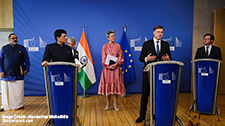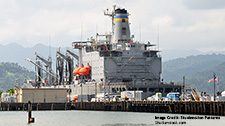Northern Ireland 20 Years after the Peace Deal

Alec Forss
This week marks the twentieth anniversary of the historic Good Friday Agreement of 1998, which signaled an end to the three decades of violence in Northern Ireland known as the Troubles. Renouncing armed struggle, all sides pledged to pursue their aims peacefully through political accommodation. The price had been high: over 3500 deaths, tens of thousands injured, while communities were left with deep psychological scars and grievances.
Peace was not established overnight. Despite the wave of relief and elation, some neighborhoods in fact experienced an upsurge in violence following the agreement, with much uncertainty and suspicion regarding the path ahead. Put to a referendum, only half of the Unionist community who voted endorsed the peace deal. Just a few months later, the tragic Omagh bombing – in which 29 people were killed – was a violent demonstration of opposition to the agreement by a small but significant faction of dissident Republicans who called themselves the Real IRA.
Despite numerous setbacks, however, the mechanisms for peace were gradually implemented. Key milestones, among others, included the decommissioning of paramilitary weapons in 2005, and, following years of suspension, the election of a new Northern Ireland Assembly and power-sharing executive in 2007. A Parades Commission had also been established to rule on contentious parades, while Sinn Fein’s acceptance of the newly reformed Police Service of Northern Ireland marked a breakthrough for the normalisation of law and order.
Read the full article here.
Related Publications
-
Trade, Connectivity and Supply Chains in EU-India Relations
In the decade and a half since 2007 when the EU and India first started their FTA negotiations, the world economic order has undergone a sea change. During that period, […]
-
Needed, a Framework to Protect Undersea Cables
In the data-driven world we live in, submarine cables are the arteries that connect nation-states and their people in literally every human activity, including trade, commerce, entertainment, and social interactions. […]
-
India-Japan-Philippines: A Strategic Maritime Trilateral or More?
Regional states like India, Japan, and the Philippines have been seeking cooperative solutions with other middle powers that can both counter the Chinese influence and fulfill other economic as well […]
-
What I heard in Munich: Europe gets a brutal awakening- Anna Wieslander
The recipe of the day at the Munich Security Conference (MSC) was to strengthen “the European pillar” in NATO, a concept that has been floated for many years but with […]
-
ISDP Annual Report 2023
ISDP’s Annual Report for the year 2023. We look back on 2023, a year in which tensions and conflicts captured the strategic space in ISDP’s focus areas, making headlines around […]




